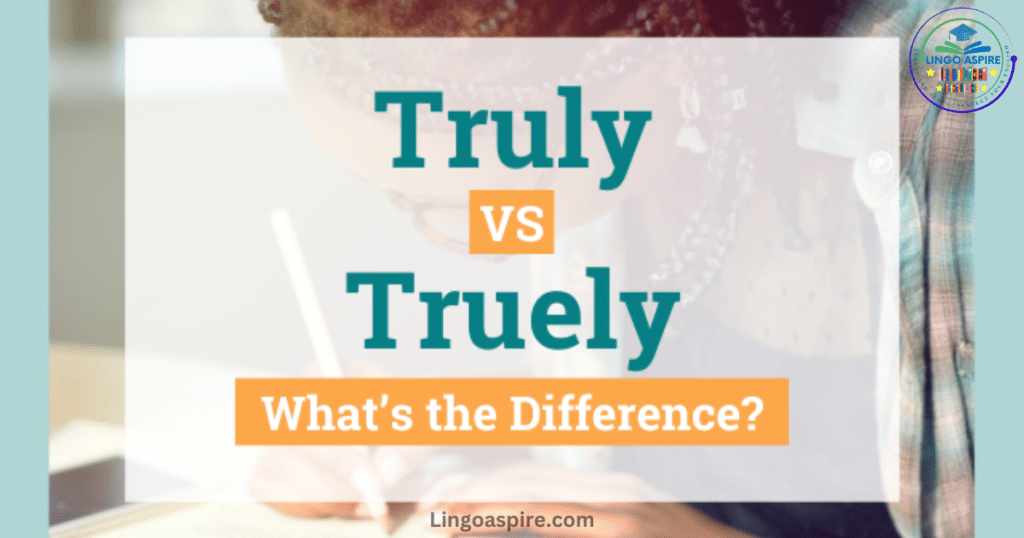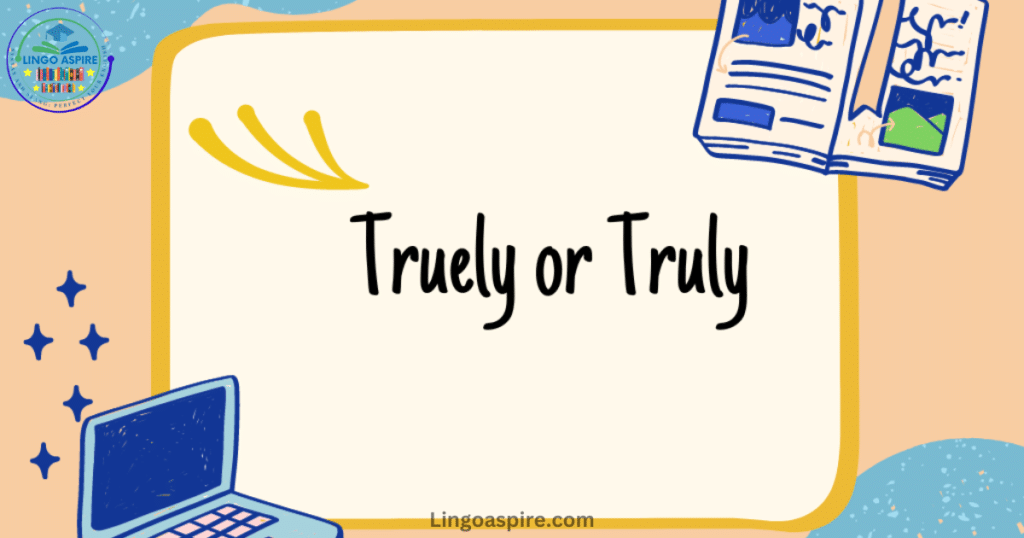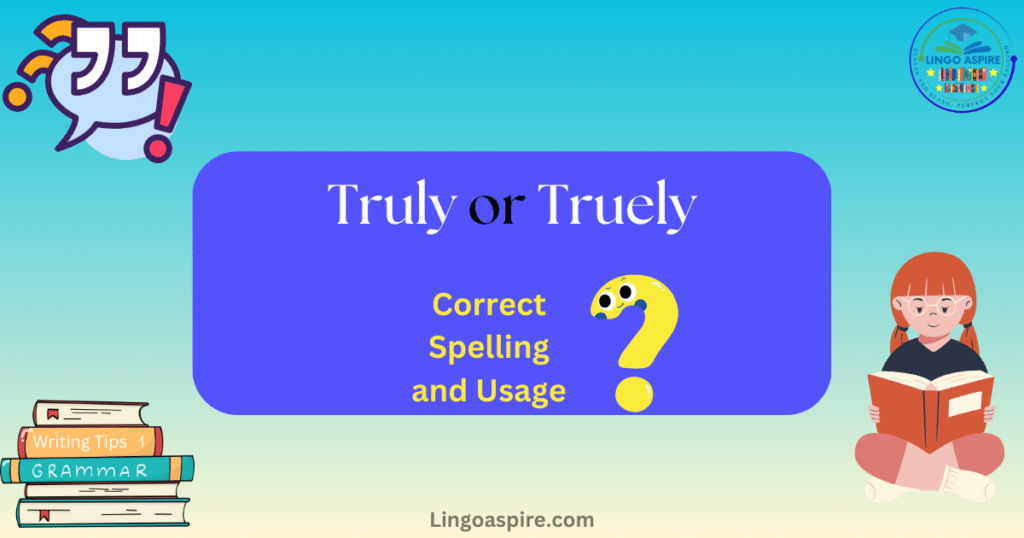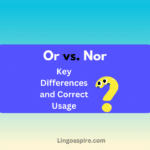The English language is filled with challenges, and spelling is no exception. One common confusion involves the word truly versus the misspelling truely. If you’ve ever wondered which is correct, this guide will give you the clear answer, history, examples, and practical tips to avoid this mistake. Let’s dive into the fascinating world of spelling, origins, and English rules.
Truly or Truely: Which Is Correct?
The correct spelling is truly. The word “truly” evolved from “true,” but it drops the “e” when adding the “-ly” suffix. On the other hand, “truely” is a common spelling mistake, even though it may look logical. Many people think the “e” in “true” should carry over to “truely,” but English spelling rules often defy expectations.
This error is widespread because English has many exceptions when forming adverbs from adjectives. For example, “nice” becomes “nicely,” but “true” becomes “truly.” Remembering the standard spelling conventions to ensure clarity and professionalism in your writing is essential.
Differences between Truly or Truely

1. Meaning and Usage of “Truly”
- “Truly” is an adverb derived from the adjective “true.” It is used to emphasize the sincerity or authenticity of an action or statement. It expresses a sense of reality, honesty, or accuracy.
- Examples:
- “She is truly talented.”
- “I truly appreciate your help.”
In these cases, “truly” emphasizes the genuine nature of the statement.
2. Common Mistake: “Truely”
- The misspelling “truely” occurs because of the mistaken assumption that the “e” from “true” should carry over when forming the adverb with the “-ly” suffix. However, this is incorrect, as English spelling rules do not follow this pattern in this case.
- “Truely” is not an accepted word in standard English, and it is considered a spelling error. Most spell-check tools will flag “truely” as incorrect and suggest “truly” instead.
3. Why “Truly” Drop the “E”
- The spelling of “truly” follows historical and linguistic patterns. It evolved from the Old English word “trēowe” (meaning “faithful” or “loyal”). Over time, when the suffix “-ly” was added to form the adverb, the final “e” was dropped to simplify pronunciation and spelling. This process follows a broader pattern in English where the addition of “-ly” drops the “e” in some words, like “true” becoming “truly” or “whole” becoming “wholly.”
- This is why “truly” is correct, while “truely” is not.
4. Similar Words with the Same Pattern
- Many words follow a similar pattern of dropping the final “e” when adding the “-ly” suffix. Here are a few examples:
- True → Truly
- Whole → Wholly
- Due → Duly
- False → Falsely
- These words, like “truly,” are exceptions to the typical pattern where the “e” would remain when forming an adverb.
Origins and Evolution of the Word “Truly”
The etymology of “truly” dates back to Old English. It originates from the word “trēowe,” which meant “faithful” or “loyal.” When the adverbial suffix “-ly” was added, the “e” was dropped to simplify pronunciation and spelling. This change became standardized over centuries as English evolved.
Historically, you’ll find “truly” in early literary works, reinforcing its correct spelling. For instance, Geoffrey Chaucer’s writings in the 14th-century feature this word frequently. Writers continued this usage, solidifying its place in the history of truly. Unlike other words, “truly” has retained its streamlined spelling due to its regular usage in professional writing and literature.
Truly vs. Truely: Examples in Context
Examples make learning easier. Let’s compare “truly” and “truely” in real-life sentences to understand the difference. Correct usage enhances clarity, while mistakes can leave a poor impression.
Correct:
- She truly believes in her team’s potential.
- It’s truly an honor to be part of this event.
- The story is truly inspiring and heartfelt.
Incorrect:
- She truely believes in her team’s potential.
- It’s truely an honor to be part of this event.
- The story is truely inspiring and heartfelt.
Notice how the incorrect sentences look awkward? Native speakers might spot the error immediately, but even non-native speakers benefit from practicing the correct form. Using “truly” shows attention to detail, an important skill in professional and academic writing.
Tips to Avoid Spelling Errors: Truly vs. Truely
Spelling mistakes can happen to anyone, but a few strategies can help you avoid common errors like “truely.”
- Learn the Rule: Remember that “truly” drops the silent “e” from “true” before adding “-ly.”
- Practice Writing: Write sentences with “truly” to reinforce the correct spelling in your memory.
- Use Spellcheck: Most word processors flag “truely” as a mistake, making it easy to spot.
- Create Mnemonics: For example, “Truly, the ‘e’ takes a break!”
- Read More: Exposure to correct spelling in books and articles improves your ability to recognize errors.
Consistency is key. These tips not only help with “truly” but also improve overall spelling and grammar skills.
Synonyms for truly or truly

Here’s a table with synonyms for “truly” or “truely” based on different contexts:
| Synonym | Meaning/Context |
|---|---|
| Genuinely | Expressing sincerity or authenticity. |
| Honestly | Used to emphasize truthfulness. |
| Sincerely | Showing genuine feelings or thoughts. |
| Really | Emphasizing the actual truth or reality of something. |
| Authentically | Indicating something is real or true to its origin. |
| Actually | Denoting something is factually the case. |
| Veritably | Used to emphasize the truth or certainty of something. |
| Undoubtedly | Expressing certainty without question. |
| In fact | Used to introduce a statement that adds further truth or detail. |
| Correctly | Used when stating something is true or accurate according to facts. |
These synonyms all align with the meaning of “truly” when referring to something done or expressed in a sincere or real manner.
Usage of Truly vs. Truely
Here’s how to effectively use “truly” in sentences, keeping in mind its correct form and the common mistake of using “truely” instead:
- Correct Usage:
- “She was truly amazed by the performance.”
- “I truly appreciate all your help.”
- “His effort was truly remarkable.”
- Incorrect Usage (Avoid “truely”):
- “She was truely amazed by the performance.” (Incorrect)
- “I truely appreciate all your help.” (Incorrect)
- “His effort was truely remarkable.” (Incorrect)
Why “Truly” Is the Correct Choice
“Truly” is the standard form, derived from the adjective “true” with the adverbial suffix “-ly.” It is used to express sincerity or accuracy. For example:
- “I truly believe in your potential.”
Remember, “truely” is an incorrect form and should be avoided.
Frequently Asked Questions About “Truly”
Is “truely” ever acceptable?
No, “truely” is not acceptable in any formal or informal context. It’s recognized only as a misspelling in dictionaries and style guides.
Why does “truly” drop the “e”?
The “e” is dropped for simplicity and phonetic ease. This follows specific English spelling rules, even though similar words may keep the “e.”
Are there similar words with silent letters?
Yes, many English words contain silent letters or drop letters when adding suffixes. For instance:
| Word | Correct Adverb Form |
|---|---|
| True | Truly |
| Whole | Wholly |
| Due | Duly |
Conclusion
Choosing “truly” over “truely” is not just about grammar but about maintaining professional writing standards. Knowing the correct spelling truly ensures that your writing looks polished and credible. You can confidently use this word in any context by understanding its origins, recognizing common errors, and applying spelling tips. Remember, writing well begins with mastering the basics. Truly, it’s worth the effort!
Sources
- Grammarly – Truly vs. Truely: A Common Mistake
- Details: Grammarly explains that “truely” is a common misspelling, with the correct form being “truly.” They highlight that many people mistakenly carry over the “e” from “true,” but the correct adverbial form does not include the “e.” The article provides clarity on the correct usage in various contexts.
- Scribbr – Truely or Truly?
- Details: Scribbr dives into the common confusion between “truly” and “truely,” explaining the root cause of the mistake and providing examples. It emphasizes that while English does have some exceptions with adverbial suffixes, “true” drops the “e” when turning into “truly.” The article also clarifies the importance of mastering such spelling distinctions in academic and professional writing.
- ProWritingAid – Truly vs. Truely: The Correct Spelling
- Details: ProWritingAid addresses the frequent error of writing “truely” instead of “truly,” especially because it seems logical given the spelling of “true.” They discuss how the word evolved from Old English and explain the general rule of dropping “e” when forming adverbs, citing other examples for clarity. This resource provides helpful tips to avoid common spelling mistakes.







